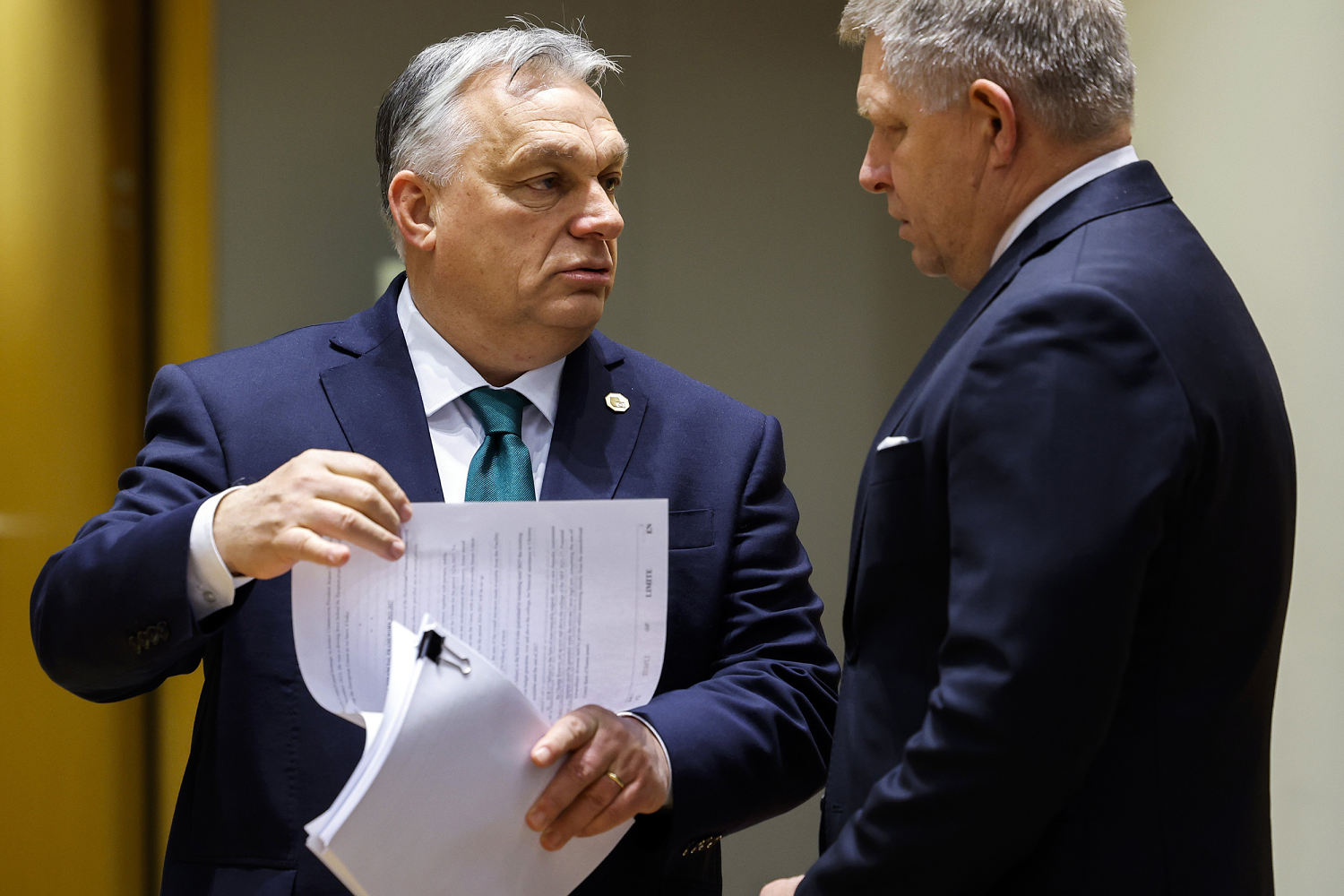The E.U. agrees on a new $54 billion aid package for Ukraine despite Hungary’s

The leaders of the 27 European Union countries sealed a deal Thursday to provide Ukraine with a new 50-billion-euro ($54 billion) support package for its war-ravaged economy despite weeks of threats from Hungary to veto the move.
European Council President Charles Michel announced the agreement that was reached in the first hour of a summit he was chairing in Brussels.
“We have a deal,” Michel said in a post on X, formerly known as Twitter. He said the agreement “locks in steadfast, long-term, predictable funding for Ukraine,” and demonstrated that the “EU is taking leadership and responsibility in support for Ukraine; we know what is at stake.”
Ukrainian President Volodymyr Zelenskyy welcomed it as a “very important” decision.
That Hungary lifted its veto, and so quickly, came as a surprise. On the eve of the summit, Hungarian Prime Minister Viktor Orban posted on X: “We will stand up for the voice of the people! Even if the bureaucrats in Brussels blackmail us.”
Orban raised staunch objections to the financial aid package in December and blocked its adoption, and he had threatened to do the same in recent days. The populist leader’s government has been in a dispute with the E.U.’s executive commission over Hungary’s alleged democratic backsliding and had some of its own funding withheld as a result.
In December, the 26 other leaders agreed the $54-billion package would run from 2024 through 2027. They also agreed to make Ukraine a candidate for E.U. membership, which Orban reluctantly accepted.
But the financial package was part of a review of the E.U.’s continuing seven-year budget, which requires unanimous approval.
An EU official, who asked not to be named because the summit was ongoing, said the leaders agreed that the bloc’s executive branch, the European Commission, would propose a review of the budget in two years, if deemed necessary. Such a review would not include an opportunity for a future veto, the official added.
Almost two years after Russia’s invasion of Ukraine, the war has ground to a halt, and Ukraine’s economy desperately needs propping up. But political infighting in the E.U. and in the United States has held up a long-term source of funding.
“Continued EU financial support for Ukraine will strengthen long-term economic and financial stability, which is no less important than military assistance and sanctions pressure on Russia,” Zelenskyy wrote Thursday on X.
On the way into their meeting, several fellow leaders had lashed out at Orban, accusing him of blackmail and playing political games that undermined support for Ukraine and the country’s war-ravaged economy.
Concern has mounted that public support to keep pouring money into Ukraine has started to wane, even though a Russian victory could threaten security across Europe.
“There is no problem with the so-called Ukraine fatigue issue. We have Orban fatigue now in Brussels,” Polish Prime Minister Donald Tusk told reporters Thursday. “I can’t understand. I can’t accept this very strange and very egoistic game of Viktor Orban.”
Orban, the E.U. leader with the closest ties to Russia, is angry at the European Commission’s decision to freeze his government’s access to some of the bloc’s funds over concerns about the alleged democratic backsliding in Hungary.
In response, Hungary vetoed statements at the E.U. on a range of issues. Orban’s also exported the problem to NATO, by blocking high level meetings with Ukraine until only recently. Budapest is also holding up Sweden’s bid for membership in the military organization.
“I don’t want to use the word blackmail, but I don’t know what other better word” might fit, Estonian Prime Minister Kaja Kallas told reporters as she arrived at EU headquarters.
“Hungary needs Europe,” she said, highlighting the country’s own economic problems and high interest rates. “He should also look into what it is in it for Hungary, being in Europe.”
Tusk insisted that there could be “no room for compromise on our principles, like rule of law. And for sure there is no room for compromise on the Ukraine question.” The recently elected Polish leader added of Orban: “If his position will dominate in Europe, then Ukraine will lose for sure.”
Irish Prime Minister Leo Varadkar said it was important for the leaders to try to seal a deal supported by all 27 member countries but that in any case “we can’t go away without an agreement.”
In the end, the leaders flew to Brussels from across Europe to address an issue that was apparently resolved within minutes.
Read More: The E.U. agrees on a new $54 billion aid package for Ukraine despite Hungary’s

